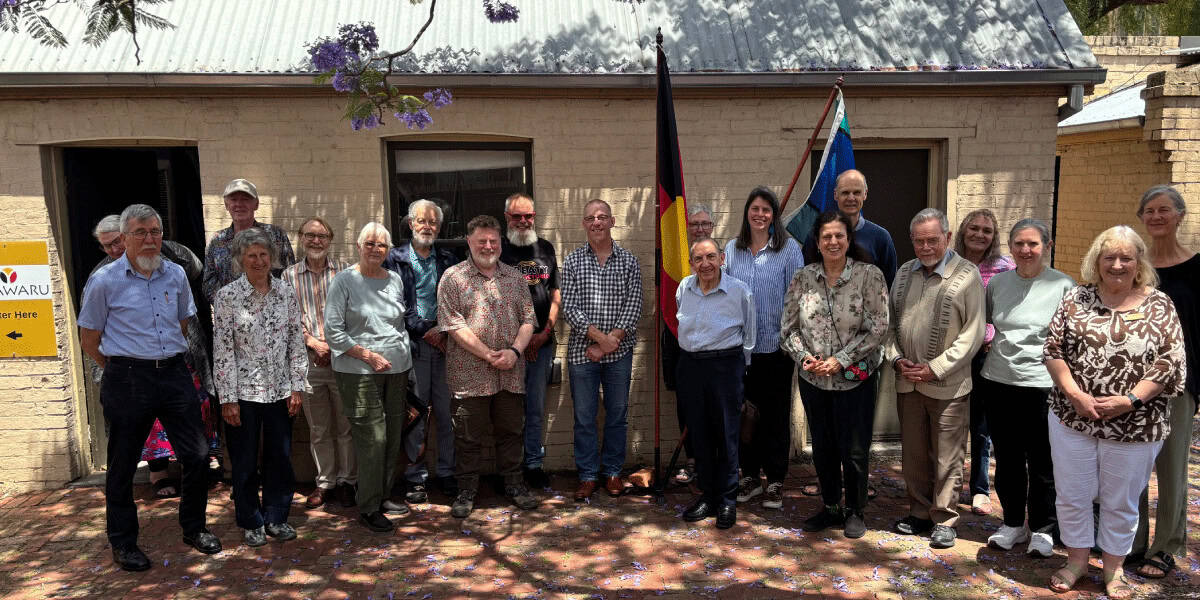Purpose
The Religion and Social Policy Network (RASP) supports the University of Divinity’s research endeavour by facilitating the work of its members to create and disseminate new knowledge about the intersection of religion and social policy.
We provide a forum for members to test and develop their ideas and provide encouragement to members in our shared endeavour of creating a more just and inclusive society, underpinned by good research and theologically informed social policy.
About the RASP Network
RASP aims to transform conversations in the public space by research enlivened by faith and theology and by engagement with public policy issues, propose publicly policy ideas arising from our research and theological reflection.
RASP’s interests are broadly defined by the environment climate change, health and economy. The Network’s focus on God’s ‘justice and righteousness’ intends to be inclusive of members’ interests, such as human rights, including of domestic and international refugees and migrants, peace and conflict and, issues arising in multicultural society.
We believe that since the colonial invasion of Australia the privatisation of religious faith removed faith’s critical voice about social policy from the public square and diminished a mode of being that distorted the truth disclosed by objective rationality.
We seek to use theological discernment as a mode of being to critique and challenge political and economic ‘rationalism’, in particular to be in solidarity with Indigenous Australians arguing for justice for marginalised and disadvantaged people in our society.
The RASP Network seeks to be a collegial community of passionate researchers who share a range of faith commitments and who seek to engage our faith in justice issues of public policy.
Engage
RASP hosts and contributes to a number of public events during the year. Visit the University’s Vox (News and Events) website for information about public events coming up near you.
Members of RASP also regularly contribute to public commentary on current social policy issues. The University consists of eleven colleges representing a diverse range of Christian traditions so most articles will reflect the perspective of our members but in engagement with a range of other perspectives.
Disclaimer: The University of Divinity does not accept any responsibility or liability for the opinions expressed in these pages.
Latest articles
All articles
A theological conversation on Country
On 12 December 2025, the Victoria Treaty between the state of Victoria and First Peoples officially came into effect to great public celebration. The next day a much smaller group gathered at Yilawaru in St Kilda to consider and respond to the recent book Contemplating Country by Trawloolway theologian Rev Dr Garry Worete Deverell.

Toxic work in Australia’s banks
A University of Divinity study of ten Australian bank employees brings to light a hidden spectre of suicide in Australia’s banks.
Research
Under the overall focus of Flourishing in a Fragile World, these themes help RASP focus its research efforts but are not exclusive. They will be regularly informed by Indigenous, inter-generational, gender diverse, multicultural and multi-religious sources and dialogue.
Ecology
Theologically, our earthly home (oikos) or Creation is intrinsically ‘good’, beautiful and purposeful, abundant yet finite. This sits in tension with a rising sense of the fragility, scarcity and exploitation of these qualities. Belief in nature as infinite raw material for utilitarian quantification and commodification threatens Creation. It is urgent that humankind connects a theology of cosmic reconciliation with the practical urgency of the plight of the earth and the poor, as victims of violence and injustice. The positive reception to Pope Francis’ lyrical Laudato Si’ encourages us to develop further the Yarra Institute’s religiously-based research into social policy for the flourishing of creation.
Economy
Economy also comes from the root oikos, both linked to and enveloped by ecology. It is not reducible to mere economic prosperity or growth (GDP). RASP encourages research into a more social and ecological economy which sustains a dynamic relationship between the two dimensions. This will be expressed in two primary projects: Critical turning or crisis points in the history and future of capitalism; The increasingly global phenomenon of precarious or fragile work threatening sustainability of current models of work, family and community life.
Economy Research by RASP Members
2019
- Podcast | Hard Work Never Killed Anyone, Part I: Subduing Death, Modernity’s Heroic Intent
In this episode of Ergasia, we begin an exploration of the book Hard Work Never Killed Anyone: How the Idolisation of Work Sustains this Deadly Lie, by John Bottomley, published by Morning Star Publishing in 2015.What are the beliefs that underpin modernity’s construction of work and economy? How did these beliefs come into being? What is the role of ideology in this process? How are modernity’s beliefs about work and what constitutes the legitimate spheres for the expression of human emotion sustained? These are the questions we explore as we start this new series.
Well-being
The language of Well-being is increasingly moving into religion’s traditional realm. It potentially integrates the personal, communal and political through more holistic and spiritual approaches to the mysteries of illness, death and the nature of human life than current western medical models. Key generational and historical injustice issues to be addressed include indigenous inequalities, aging, youth unemployment, domestic violence, abuse, and mental illness. The religious quest for flourishing (e.g. shalom, abundant life) connects with these pressing wellbeing issues and their ecological, economic and spiritual causes. Such healing contributions could help restore the sense of safety, transparency and authenticity of the church’s pastoral practices and services to society amidst pressures towards secularisation, privatisation and centralisation.
Membership
Support the work of RASP by applying to become a Member.
The purpose of appointment as a member of the Religion and Social Policy is to promote and foster the work of the network through:
- links between RASP and other appropriate institutions;
- collaboration in research, scholarship, publication, advocacy and policy development;
- exchange and sharing of knowledge, experience and expertise.
Members of RASP will also have the opportunity to engage together in religious and social policy dialogue under the network’s auspices. Those with a religious faith will also be given opportunities for participating in intentional conversations that are integrative of their faith and professional research and social policy practice.
Membership of RASP is accorded to collaborators who take part in the work of the network on a regular basis or during a period of at least three months based at, or otherwise working with the network. The status implies a significant contribution to the work of RASP. While membership is usually honorary, members are not precluded from receiving remuneration for undertaking specific assignments for the network.
The Management Group may appoint as Members of RASP persons who are able to contribute to its aims.
- Members are entitled to access facilities of RASP and, through the network, may be entitled to access the facilities of the University.
- Members must acknowledge RASP and the University in public activities and research publications supported by their association with the network.
Associate members
Appointment as an Associate Member of RASP is accorded to collaborators who take part in the work of the network on a regular basis or during a period of at least twelve months working with the network. The status implies a significant contribution to the work of the network. While an Associate Member of RASP is an honorary role, Associate Members are not precluded from receiving remuneration for undertaking specific assignments for the network.
How to apply for Membership
If you would like to apply to become a member, please email, together with a statement detailing how you propose to contribute to the work of RASP, a short curriculum vitae (up to 5 pages) detailing current and previous research and/or other professional contributions relevant to the work of the University of Divinity and the Religion and Social Policy network.
Get in touch
Email: rasp@divinity.edu.au

